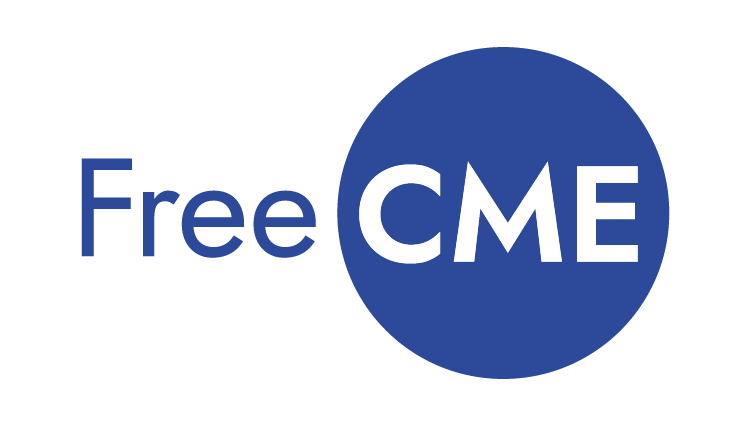
The Clinical, Economic, and Patient Benefits of Peer Specialists in the Management of Persons With Depression
Released On
September 5, 2025
Expires On
March 5, 2026
Media Type
Internet
Completion Time
60 minutes
Specialty
Pharmacy, Primary Care, Psychiatry
Topic(s)
Depression, Major Depression, Mental Health, Mood Disorders
Providers/Grant Support:
This educational activity is provided in collaboration with the Academy for Continued Healthcare Learning (ACHL) and the Depression and Bipolar Support Alliance (DBSA).
Supported by an educational grant from Takeda Pharmaceuticals U.S.A., Inc.
Credit Available
- Physicians — maximum of 1.0 AMA PRA Category 1 Credits™
All other healthcare professionals completing this course will be issued a statement of participation.
Target Audience
This activity is intended for U.S.-based healthcare systems and healthcare providers including psychiatrists, hospital administrators, primary care providers, clinical pharmacists, psychiatric nurses, and other members of the multidisciplinary team managing patients with depression.
Program Overview
Even amongst patients who do seek treatment for their depression, over half do not receive adequate care. Nonadherence and early medication discontinuation are common, and the underlying reasons are varied. Past efforts to improve treatment persistence have yielded only modest success. However, most experts agree that clinical strategies are often rendered with an incomplete understanding of the complex barriers patients are facing in their daily lives.
Considering these challenges, many health systems have augmented their workforce to include peer specialists who work in complement to the clinical team. These workers are individuals with the lived experience of a mental health condition who provide support to others experiencing similar challenges. They provide non-clinical, strengths-based support and in addition to having direct experience, are trained through credentialed programs. Their inclusion as part of the healthcare workforce can help break down barriers of experience and understanding, as well as “power dynamics” between patient and provider that may impede optimal management.
In this activity, clinical specialists and patients share firsthand accounts on the benefits of having peer specialists work in complement to the treatment team and provide best practices on steps to integrate these team members, from training requirements and competencies to roles and job structures.
Learning Objectives
Upon completion of this activity, learners will be able to:
- Assess the value of expanding workforces to include peer support individuals
- Outline strategies on how to integrate peer specialists to complement treatment practices
Faculty
Karen G. Rentas, PhD
Director of Behavioral Health
Providence Facey Medical Foundation
Mission Hills, CA
Lauren Yang, PsyD
Licensed Clinical Psychologist
Lunar Wave Psychological Services Inc.
Long Beach, CA
Jennifer D. Adkison
Certified Peer Counselor
Pacific Northwest, WA
Sharon T. Chen
Patient Advocate
Accreditation Statement

This activity has been planned and implemented in accordance with the accreditation requirements and policies of the Accreditation Council for Continuing Medical Education (ACCME) through the joint providership of the Academy for Continued Healthcare Learning (ACHL) and the Depression and Bipolar Support Alliance (DBSA). ACHL is accredited by the ACCME to provide continuing medical education for physicians.
The Academy for Continued Healthcare Learning designates this enduring material for a maximum of 1.00 AMA PRA Category 1 Credit(s)™. Physicians should claim only the credit commensurate with the extent of their participation in the activity.
Physician assistants, nurse practitioners, and nurses may participate in this educational activity and earn a certificate of completion as AAPA, AANP, and ANCC accept AMA PRA Category 1 Credits™ through their reciprocity agreements.
Disclosures of Conflicts of Interest
The Academy for Continued Healthcare Learning (ACHL) requires that the faculty participating in an accredited continuing education activity disclose all affiliations or other financial relationships within 24 months (1) with the manufacturers of any commercial product(s) and/or provider(s) of commercial services discussed in an educational presentation and (2) with all ineligible companies. All relevant financial relationships have been mitigated prior to this activity.
Faculty have no financial relationships to disclose:
Karen G. Rentas, PhD
Lauren Yang, PsyD
Jennifer D. Adkison
Sharon T. Chen
ACHL staff members, DBSA staff members, and others involved with the planning, development, and review of the content for this activity have no relevant affiliations or financial relationships to disclose.
Instructions for Participation and Credit
This activity will take approximately 60 minutes to complete. To receive credit, learners are required to complete the pretest, view the online activity, and complete the posttest and evaluation. To receive credit, 66% must be achieved on the posttest. A certificate will be immediately available. There is no fee to participate in the activity or for the generation of the certificate.
Disclosure of Unlabled Use:
Discussion of scientific information on unapproved uses (SIUU), off-label, investigational, or experimental drug/device use: None
Disclaimer
The content for this activity was developed independently of any ineligible company. All materials are included with permission. The opinions expressed are those of the faculty and are not to be construed as those of the publisher or grantor(s).
This educational activity was planned and produced in accordance with the ACCME Standards for Integrity and Independence in Accredited Continuing Education. Recommendations involving clinical medicine in a continuing medical education (CME/CE) activity must be based on evidence that is accepted within the profession of medicine as adequate justification for their indications and contraindications in the care of patients. All scientific research referred to, reported, or used in CME/CE in support or justification of a patient care recommendation must conform to the generally accepted standards of experimental design, data collection, and analysis.
This CME/CE activity might describe the off-label, investigational, or experimental use of medications and/or devices that may exceed their FDA-approved labeling. Physicians should consult the current manufacturers’ prescribing information for these products. ACHL requires the speaker to disclose that a product is not labeled for the use under discussion.
Contact Information
For questions, contact Laurie Novoryta at [email protected].
